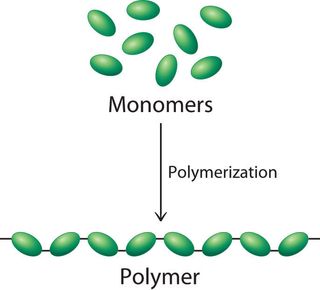Exploring the Varied Applications and Advantages of Polymers in Different Industries
Polymers, with their diverse variety of homes and capabilities, have become important in numerous markets, each reaping distinct advantages from their application. Polymers. From boosting safety and performance in the vehicle market to changing medical gadgets in the medical care industry, polymers play a crucial function. Additionally, their eco-friendly nature is changing the landscape of sustainability techniques. As we explore the depths of polymers in electronics, we uncover cutting-edge advancements, while their architectural integrity changes the realm of construction and framework. The prevalent influence of polymers throughout markets is a testament to their convenience and adaptability, shaping the future of many industries.
Automotive Sector Applications
Polymers play an essential role in improving the performance and toughness of numerous components within the automobile industry. One noticeable use of polymers in the automobile sector is in the production of lightweight elements.

Healthcare Market Advantages
In numerous healthcare applications, the benefits of making use of polymers are commonly identified for their diverse variety of helpful homes. Polymers play a critical function in the healthcare industry as a result of their flexibility, biocompatibility, and cost-effectiveness. Among the key advantages of polymers in health care is their capability to be tailored to specific requirements, such as adaptability, toughness, and biodegradability, making them ideal for a wide variety of clinical applications.
Polymer-based materials are extensively used in medical tools, such as catheters, implants, prosthetics, and medicine shipment systems, due to their biocompatibility and ability to resemble all-natural tissues. These materials can lower the threat of sensitive responses or rejections, boosting individual security and outcomes. In addition, polymers are light-weight, making them appropriate for wearable clinical devices and making certain person comfort.
In addition, polymers make it possible for the growth of innovative treatment techniques, such as hydrogels for cells engineering and nanocomposites for targeted medication distribution. Their simplicity of handling and sterilization makes them necessary for maintaining high requirements of health in health care setups. Overall, the diverse benefits of polymers contribute substantially to advancements in medical modern technology and patient treatment.
Ecological Benefits of Polymers

Moreover, polymers can add to power savings due to their lightweight nature. In sectors such as transportation, lightweight polymer materials can help in reducing fuel usage and greenhouse gas discharges. Additionally, polymers can enable the development of energy-efficient products such as insulation products that boost power preservation in buildings.
In addition, polymers play an important function in lowering water air pollution. For instance, using polymer-based filtration systems can efficiently remove pollutants and contaminants from wastewater, safeguarding water sources and ecosystems. On the whole, the ecological advantages of polymers make them useful possessions in promoting sustainability and environment-friendly methods across different markets.
Polymers in Electronics and Technology
Considering the increasing need for ingenious and lasting remedies in modern industries, the integration of advanced polymer innovations in the world of electronic Home Page devices and modern technology has actually emerged as a critical strategy for driving performance and efficiency. Polymers have actually reinvented the electronics sector by making it possible for the production of lighter, much more versatile, and resilient electronic devices. From mobile phones to medical tools, polymers play an essential function in enhancing product layout and capability.
One considerable benefit of polymers in electronic devices is their shielding buildings, which assist secure fragile electronic components from ecological aspects and electrical disturbance. In addition, polymers are crucial in the growth of versatile display screens, wearable modern technology, and published electronics, offering endless opportunities for developing clever and interconnected gadgets.
Additionally, the use of polymers in digital product packaging has resulted in improvements in miniaturization and thermal management, improving the general performance and integrity of digital systems. As innovation proceeds to progress, the adaptability and adaptability of polymers will certainly drive even more innovation in the electronic devices sector, forming the future of technology.
Role of Polymers in Building and Facilities
Polymers offer various advantages in the building market due to their versatility, sturdiness, and cost-effectiveness. One YOURURL.com vital function of polymers in building and construction is their usage in coatings and sealers, giving protection against environmental factors such as moisture, UV radiation, and corrosion.
Furthermore, polymers play an essential function in lasting construction techniques by enabling the growth of energy-efficient structures. Insulating products made from polymers aid regulate indoor temperature levels, decreasing the demand for home heating and cooling down systems and ultimately lowering energy usage. Furthermore, making use of polymer-based composites in facilities jobs such as bridges and roadways enhances their longevity and lowers upkeep costs. On the whole, the incorporation of polymers in construction and infrastructure displays their considerable effect on contemporary design techniques.
Final Thought
In verdict, polymers play a crucial role in best site numerous markets such as automobile, healthcare, ecological, electronic devices, and building and construction. From enhancing fuel efficiency in vehicles to boosting medical gadgets, polymers provide numerous benefits.